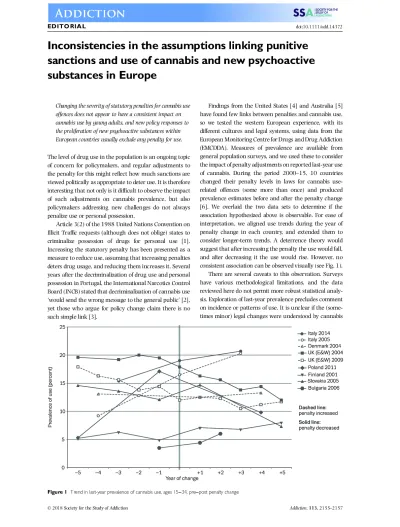Summary
The level of drug use in the population is an ongoing topic of concern for policymakers, and regular adjustments to the penalty for this might reflect how much sanctions are viewed politically as appropriate to deter use. It is therefore interesting that not only is it difficult to observe the impact of such adjustments on cannabis prevalence, but also policymakers addressing new challenges do not always penalize use or personal possession.
Article 3(2) of the 1988 United Nations Convention on Illicit Traffic requests (although does not oblige) states to criminalize possession of drugs for personal use 1. Increasing the statutory penalty has been presented as a measure to reduce use, assuming that increasing penalties deters drug usage, and reducing them increases it. Several years after the decriminalization of drug use and personal possession in Portugal, the International Narcotics Control Board (INCB) stated that decriminalization of cannabis use ‘would send the wrong message to the general public’ 2, yet those who argue for policy change claim there is no such simple link 3.
Download as PDF
Hughes_et_al-2018-Addiction.pdf
PDF files are made available as a convenience. In cases where the EMCDDA is not the originator of the document, please be aware that any PDFs available on this page may not be authoritative or there may be more recent versions available. While we make every effort to ensure that these files are definitive, before using or citing them, we recommend that you consult the publisher's website or contact the author(s) to check for more recent versions.









